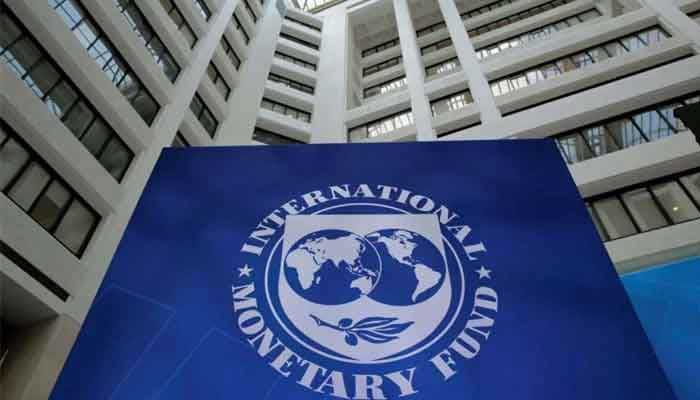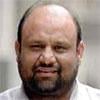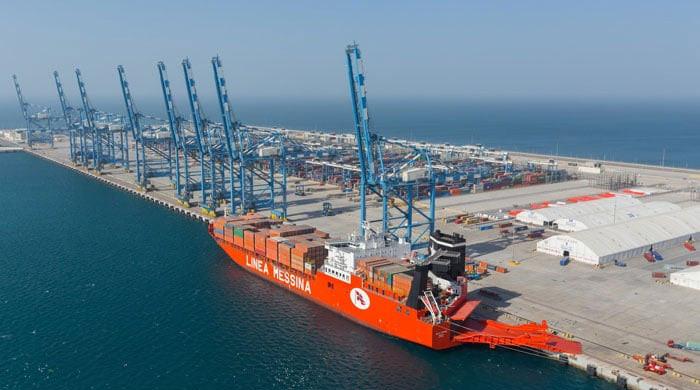IMF rejects proposal for tariff adjustment, subsidy on inflated electricity bills
Pakistan has requested Fund to allow staggering of QTAs and FPAs of Rs7.50 per unit in winter months
September 05, 2023

- Tariff hike of over Rs7 per unit is on the cards, official sources say.
- Power ministry claims bill collection has improved for August 2023.
- PM Kakar says govt exploring options to come up with out-of-box solutions.
ISLAMABAD: As the government mulls all options to provide relief in electricity bills, the International Monetary Fund (IMF) rejected the proposal for any tariff adjustment or provision of additional subsidy despite the authorities claim that their collection of bills for August had reached close to the expectations, The News reported on Tuesday.
Amid the IMF’s serious objections to the government’s proposal to provide relief to the poor people against the inflated power bills, Pakistan has requested the global lender to allow the staggering of upcoming quarterly tariff adjustments (QTAs) and Fuel Price Adjustments (FPAs) of Rs7.50 per unit over the next four to six months.
“However, Pakistan has requested the IMF for staggering of QTA and FPA over a period of four to six months so it may also require some additional cost on which both sides will have to agree upon,” top official sources confirmed while talking to The News on Monday.
The sources said the power sector woes continued to persist in the wake of QTA’s requirement of raising tariffs in the range of Rs5 per unit in the ongoing month and FPAs to the tune of Rs2.72 per unit. So in totality, a tariff hike of over Rs7 per unit is on the cards.
The QTAs will be worked out on the basis of losses of April-June period on account of reduced usage of units, cost escalation of interest payment and exchange rate fluctuations.
The FPA is calculated for a surge in prices of imported fuel so in totality Rs7.50 per unit hike in the prices is on the cards for being incorporated in the September bill with the consent of the regulator.
Meanwhile, the power ministry high-ups claim that their bill collection has improved for August 2023 reaching close to the expectations. They argue that they would have to request for a staggering of QTAs and FPAs to the IMF in order to bring the inflated bills down.
According to the workout of electricity bills for different categories done by the power ministry, power charges for those using 400 units would be reduced from Rs21000 in August 2023 to Rs16963 in September and Rs11356 in October after incorporating QTAs and FPAs.
Similarly, the charges for those using 300 units would be reduced from Rs13000 in August to Rs10,000 in September and Rs8000 in October 2023.
After October, the winter will kick-start so the issue of hiked bills was expected to be resolved.
The official further said they were going to ask the Nepra to determine the next tariff adjustments keeping in view seasonality trends in mind because usage in summer months peaked but dropped in winter so the adjustment of tariff should be done keeping in view this seasonality trend.
PM orders action power thieves
In a related development, caretaker Prime Minister Anwaar-ul-Haq Kakar Monday directed immediate action against those involved in power theft and asked the relevant authorities to submit reports in this regard on daily basis, reported APP.
Chairing a meeting, the prime minister also directed a swift action against the defaulters, saying there should not be any leniency towards the power thieves and defaulters.
The prime minister was briefed in detail about all sections of the energy sector. The meeting was informed about the total installed capacity, actual generation and overall energy supply during various seasons.
The prime minister was also informed about the energy mix in power production.
Kakar stressed that in the future, renewable and hydel sources of energy should be given top priority to produce inexpensive and green energy. He also directed effective measures to reduce line losses of the power distribution companies.
“A comprehensive plan should also be prepared and presented to implement the transformer metering project. Projects of small hydel power projects should be planned under the guidance of relevant experts. Such projects will not only generate low-cost electricity but also help in reducing the harmful effects of climate change,” he said, adding that the local coal should be preferred, instead of expensive imported coal in the coal power generation projects.
The prime minister also directed the prompt launch of 2400MW solar power projects while ensuring transparency in the entire process. The government, he said, would take all possible steps to reduce the circular debt of the power sector.
The meeting was also informed about the progress on the establishment of an energy market in the country. The meeting was informed that with the establishment of the energy market in the country, the performance and capacity of the power sector would be effectively increased which would eventually help 27 million domestic consumers.
It was also informed that most of the work by the Power Division had already been completed in this regard.
'Out-of-box solutions'
Meanwhile, the prime minister Monday directed the Ministry of Finance to devise an effective strategy to bring economic stability in the country.
The prime minister said this in a meeting with Interim Finance Minister Shamshad Akhtar who called on him here. The finance minister also briefed the prime minister on the current economic situation in the country.
Kakar assured that his government was exploring realistic options to come up with out-of-box solutions to provide relief to electricity consumers.
The prime minister, in an interaction with foreign media representatives, said the government would make informed decisions to satisfy the masses on the issue of electricity bills without deviating from the country’s commitments with the international financial institutions.
Mentioning the issues of circular debt, power theft and taxes, the prime minister said the government would introduce short-term solutions to the issue without undermining the agitating people.
He assured that the caretaker government was mandated to facilitate holding the general elections as early as possible while observing the constitutional obligations.
He said the Constitution called for carrying out the delimitation of constituencies following the population census.
Kakar said without redesigning the government structure, the interim setup was mainly focused on rearranging the fiscal and monetary policies to build an edifice for economic revival.












